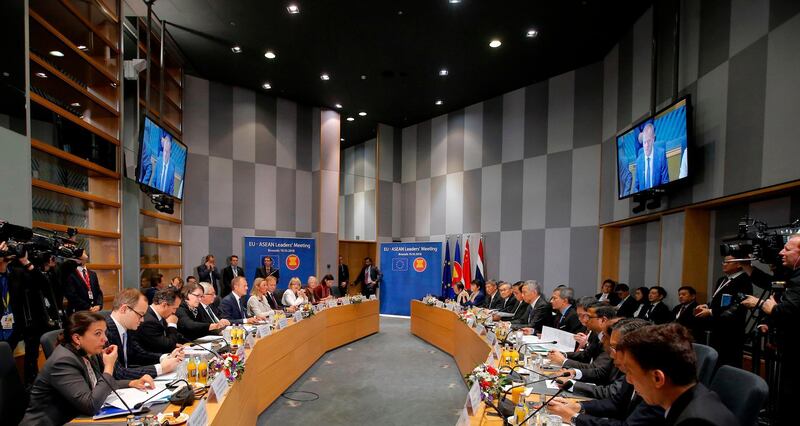Euro-zone finance ministers will discuss Italy’s 2019 draft budget at their next meeting, on November 5, despite Italian requests to postpone the talks, a European Union official said at the weekend.
Yields on Italy’s bonds have spiked since September, when the Italian euro-sceptic government disclosed details of a free-spending budget that would breach EU fiscal rules and could increase the country’s large debt. But delegates from other euro-zone states agreed at a meeting last week to hold the talks anyway, the official said, in a new sign of the isolation of Italy’s government in the 19-country region.
The discussion will follow the EU Commission’s unprecedented decision this week to reject the Italian budget on the grounds that it vastly deviated from previously agreed fiscal targets.
This decision was backed by euro-zone officials this week at a meeting in Brussels, a second EU official said.
_______________
Read more:
EU rejects Italy's draft budget
European Central Bank cannot rescue Italy without EU bailout, sources say
_______________
At the November 5 meeting, finance ministers are expected to endorse the envoys’ position on the Italian budget, although it is unclear now whether there will be a joint statement at the end of the meeting on the issue, the second official said.
Under EU rules, after the Commission’s rejection Italy is required to send a revised version of its draft budget to Brussels by November 13.
To fully meet EU requirements, Italy would have to cut by 0.6 pe rcent its structural deficit which excludes one-off expenditures. Instead, it plans a 0.8 per cent increase. The higher deficit would help finance a lower retirement age, welfare handouts and tax cuts to meet election pledges.
But EU officials fear it could also increase the country’s public debt, which at a ratio of more than 130 per cent of the gross domestic product is the euro zone’s second-largest after Greece.






